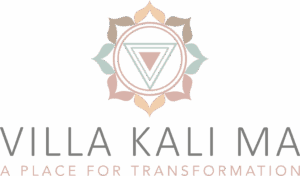
Every woman alive is a daughter. Daughterhood is a deep and archetypal condition, a form we fill out, each in our own ways. All mothers are daughters, too.
The relationship between mother and daughter is like no other. For better or worse, the mothers out of whose bodies and psyches we were forged will always be a source further upstream from us, a wellspring that feeds into our own lifestream.
For those of us with mothers who have also harmed us deeply, we know the peculiar bond braided from love, victimization, and dependency all at once. But nothing is unmixed, even the worst mothers give us something good – if only our own lives.
Those of us who feel mostly positive towards our mothers are still imprinted in such a way that we are forever influenced, and guided into being who we are now partly because of who she is or was.
We are all made out of our mothers. And our daughters are made out of us.
What is the effect an alcoholic mother can have on her daughter?
When a mother is an alcoholic, the effect of that alcoholism on her daughter follows a recognizable pattern. The patterns are predictable, as is the course of alcoholism itself.
Alcoholism shows up in different forms, but has one thing in common – whoever you once were, whoever you could have been, your original self is replaced with an alcoholic version of you.
Daughters of alcoholic mothers suffer greatly at the hands of the alcoholic version of their mother, whether by neglect of basic needs, psychological and physical abuse, exposure to danger, or just the unpredictability and inconsistency of people with addiction. Daughters of alcoholic mothers develop a recognizable syndrome, called “adult child of an alcoholic”, or ACOA.
A daughter of a mother who struggles with alcoholism is likely to:
- have severe problems with self-esteem, struggling her whole life with guilt, shame, and self-blame
- be anxious, depressed, and perfectionistic
- have poor boundaries and internalize her anger (turn against herself rather than get mad at others)
- develop behavioral health problems (substance addiction, eating disorders, and/or other kinds of self-harm)
- be diagnosed with a mental illness (panic disorder, generalized anxiety, major depression, ADHD, and so on)
- have a codependent relationship style, and/or be attracted to partners who also have addiction problems
- have an ambivalent, avoidant, or disordered attachment style
Codependency, a concept very closely linked to ACOAs, is a kind of psychological syndrome reflecting the dependent child’s adaptation to her mother’s illness.
Codependency is characterized by psychological fusion and role confusion, wherein the child becomes “parentified” and roles get reversed so that in some domains the child meets the parent’s needs rather than the other way around.
In codependent dynamics, a non-substance-addicted person, in this case, the daughter, takes on responsibility for the alcoholic’s life, trying to compensate for their pain, and most of all trying to control the addicted person’s unsafe, unpredictable, and toxic behavior. This enabling and “closeness” (which is actually unhealthy enmeshment) is confused for love.
What strong connection does a mother have with her daughter?
 The bond between a mother and her daughter is the most impactful relationship the daughter will ever have. It is the starting place for a daughter, and like the beginning of a story, sets the stage for her hero’s journey.
The bond between a mother and her daughter is the most impactful relationship the daughter will ever have. It is the starting place for a daughter, and like the beginning of a story, sets the stage for her hero’s journey.
All children live for a long time in the metaphorical kangaroo pouch of their mother’s psyches. Mothers and babies begin their relationship in a state of merge, a kind of oneness similar to being in love. It is a stage of deep bonding and imprint that can never be undone, no matter what else happens.
Whether that relationship is sweet or fraught, it is a state of fusion. Whatever is true in the mother’s psyche will be shared with her daughter directly, cell to cell, during this stage. A daughter is psychologically part of her mother for many years after the physical parting from her mother’s body at birth.
The process by which a daughter becomes her own being and no longer primarily sourced out of her mother’s body and being is gradual, going through many steps and stages of growth and separation. The individuation process may be said to take decades.
Even when a daughter’s mother has passed on out of the physical realm, the psychological memory and shaping of the mother will persist, as it is not only about the individual person who had the role of being our mother but also the larger archetype of mother, which is collective and universal.
How can a mother break the cycle of addiction?
It is important to know that we can retrieve ourselves from the prison of addiction. It is absolutely possible. It has been done many millions of times, as the large community of recovering people can tell you.
It also isn’t easy and demands that we rise to the occasion of our own lives. Believing ourselves worthy of redemption is hard if we do not value or love ourselves, which many of us don’t.
For many mothers, it may be through the portal of the pain of realizing their impact on their daughters, that they are given the gift of a true desire to change.
If you’re ready, here are the steps to breaking the cycle of addiction, so that what has hurt you, doesn’t go on to hurt more people:
1. Get professional help
It is very difficult to get sober and, more notably, to stay sober permanently, without a total renovation of body, mindset, and emotional habits. This is not a time to go it alone, but rather to get all the help you can.
Addiction is treatable, and recovery is absolutely possible, but it takes some doing. One-on-one psychotherapy, active and frequent participation in healing recovery groups, and behavioral skills training in learning not to react to one’s thoughts, emotions and urges are all generally necessary.
At Villa Kali Ma, we also feel that lifestyle transformations in terms of exercise, diet, and consciousness habits are supportive too. Either way, you can expect to re-envision or update almost everything about yourself and how you have approached life.
2. Educate yourself about the nature of the disease
Knowledge is power. The more we know about addiction and how it operates, the more swiftly we will be able to see it when it comes knocking on our door, asking for us to take it back, as it will most certainly do.
By learning all we can about the biology, psychology, sociology, and even spirituality of addiction and recovery, we will be gifted with more insight and compassion for ourselves, and be armed to the teeth to defend ourselves against relapse.
3. Get into community
Build a support network that is resilient and flexible, ideally made up of loving, wise souls who understand what you’re up against. If you’re not sure where to find such people, start by looking within the walls of recovery meetings like AA. Whether there, or in other communities, remember that actions speak louder than words, and vibration speaks the loudest. Look for the people whose faces are shining with peace and clarity, but who also feel real and relatable to you. Those who have no need to deny your darkness, but also have a source of light inside them, are your people.
4. Look into your Family History
Our lives, as personal as they feel to us, have strong similarities with our forebears. If we struggle with depression or alcoholism, it’s highly likely we’re not the first in our family to do so.
By looking into our family history, perhaps completing a genogram or drawing our family tree as best we can with the information we have, we can gain valuable insights and expand our compassion for ourselves and our whole family system. Understanding a pattern that is being played out in your life can bring enormous relief and help you make different choices.
5. Address the Trauma Factor
It’s important to know that trauma and addiction go together like a horse and carriage. Especially in women, addiction is very frequently rooted in traumatization, from events that took place in childhood or during adolescence, and/or from sexual violation of some kind. Trauma is difficult to recognize until you learn that what you took to be a “normal” state (eg chronic tension or dread) is actually the trauma itself. Getting dedicated help for healing trauma is very often the critical intervention that helps a woman break the cycle of addiction.
What treatment programs are offered for women struggling with alcoholism?
Gender-specific treatment is strongly advised, for women in particular. It is more effective for women to receive treatment among other women than it is for them to get help in mixed-gender settings.
This is for a variety of reasons, most of which stem from the ways that women relate to men, and whether or not women are able to feel physically and psychologically safe around men (and, of course, whether those men are psychologically and physically safe for women). All in all, for women it is preferable to be in a same-sex setting if you can find one that meets your needs.
Addiction treatment exists on a continuum of care, that starts with medically supervised detoxification in a hospital or hospital-like setting and gradually tapers down to outpatient levels of care. Most of these levels of care are available in women-only settings (such as what we at Villa Kali Ma provide).
The levels of care are:
Medically-supervised Detoxification
A short-term, hospital-like stay among medical professionals, who monitor your detoxification process to make sure you detox safely.
Partial Hospitalization
A hybrid treatment setting that retains a strong medical element in case needed, but also begins the treatment and rehabilitation process.
In-patient, or Residential treatment
Traditional rehabilitation setting, in which treatment is administered in a safe, sequestered environment away from normal life.
Intensive Outpatient Treatment
Another hybrid option provides a high level of structure and intensity of treatment services but in an outpatient setting.
Outpatient Treatment
The least intensive level of care is usually recommended as a step-down level for people who have completed higher levels of care.
Where you belong in the continuum of care depends on how long you have been drinking, how old you were when you began drinking, how much alcohol you have been drinking, how frequently you have been drinking, whether you also use prescriptions, and factors like these.
Which level of care you belong in should be determined together with a professional, with input from both of you about what may be needed and necessary in your case.
Villa Kali Ma offers all of the above levels of care in holistic women-only treatment settings.
What are the signs of alcoholism in women?
There are many tell-tale signs of alcoholism, ranging from physical signs, like liver problems, to psychological problems, like anxiety and depression.
The easiest indicator to recognize in oneself or another is out-of-control behavior related to drinking. The following signs can be helpful for recognition of the patterns:
1. Drinking More Than You Mean To in One Sitting
A common experience for people with alcoholism is an inability to set limits on one’s own drinking, within a given drinking event. For example, you may say to yourself, “I need to get up early tomorrow, so tonight I will have just one glass of wine with dinner”, but nevertheless you end up drinking several glasses. The difficulty stopping once started on a particular incidence of drinking, is a sign that alcohol has some growing power over your will.
2. Unable to Cut Down even when you have Good Reasons To
Many people decide at some point to stop drinking altogether for a while or to drink a little less, overall. It is a sign that alcoholism is at play if you find this to be very difficult or even impossible. If you cannot follow a resolution to not drink for a certain period of time, if you are struggling with your own willpower, this indicates alcoholism.
3. Craving alcohol
Women who have developed or are starting to develop alcoholism will experience cravings to drink which feel relatively strong, akin to hunger when you haven’t eaten or thirst when you’re dehydrated. It will feel almost like a bodily need, such as needing to rest when tired. Cravings to drink may kick in after emotional triggers or as a habit at a certain time of the day, as though your body is asking for it.
4. Feeling Bad when you don’t drink: aka withdrawals
Another telltale sign of alcoholism underway is if, in the absence of alcohol, you start to feel bad physically, mentally, and/or emotionally. This is the body withdrawing from alcohol. The pain can be as subtle as an uptick in unease or grumpiness, or it can be so severe that you can’t function normally due to headaches or trembling, and you find you need to consume some alcohol to return to your normal state. Eventually, withdrawals can become part of your daily life. Withdrawal symptoms include nausea, sweating, trembling, anxiety, headaches, and delirium.
5. Needing to drink more to get the same effect: tolerance
Tolerance is part of all substance addiction. Tolerance means that what used to be enough alcohol to make you drunk or get the relaxant effect you are after, is no longer sufficient, leading you to drink more and more to get the same effect. Eventually, alcoholics no longer get any pleasure or peace from drinking, and instead drink just to stave off the pain of withdrawals.
Why is it important for a mother to be a good role model for her daughter and for herself?
We believe that women matter. All women. Me, you, all of us here at Villa Kali Ma, all women everywhere.
If you’re a mother, don’t ever fall for the mean voice inside that says you don’t matter to your daughter. Even if it doesn’t seem like it, you matter more than you will ever know, and to your daughter most of all. A mother-daughter relationship is forever, and as long as you are both still here, in living, breathing bodies, you have a chance to start again.
Every daughter counts, and you’re a daughter too. You can be the mother that you need, and the mother your daughter needs, all in the same breath.
Villa Kali Ma can help women struggling with alcoholism
Villa Kali Ma offers addiction treatment and recovery programs for women who suffer from alcoholism, trauma, and/or mental health struggles. We welcome mothers, daughters, sisters, and all the women of this world, into the heart of our program of care. We are here to help you throw off the burdens of addiction and to claim your right to live fully and freely, as best you can, in the light that you actually already are.

